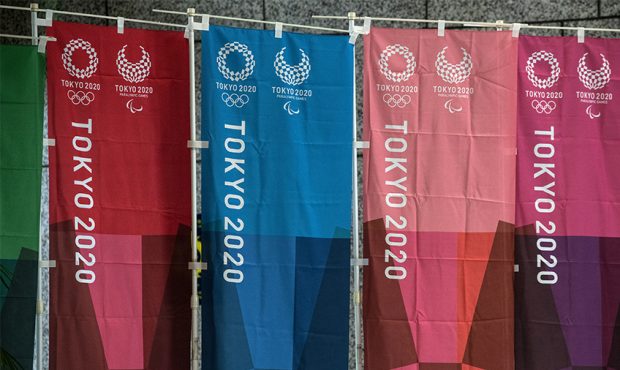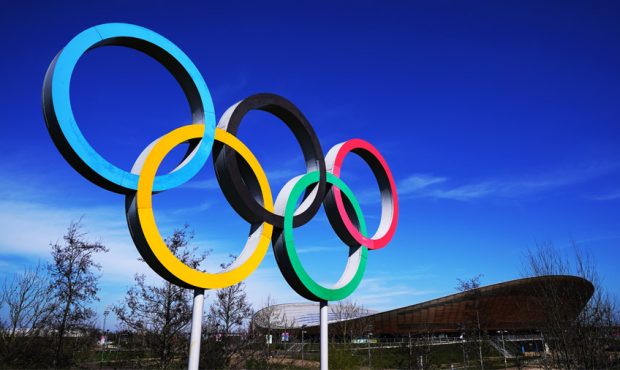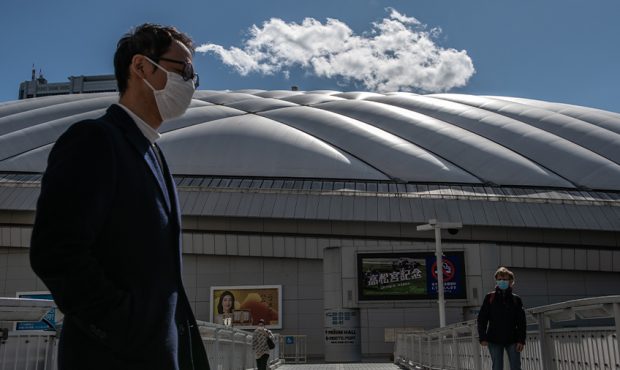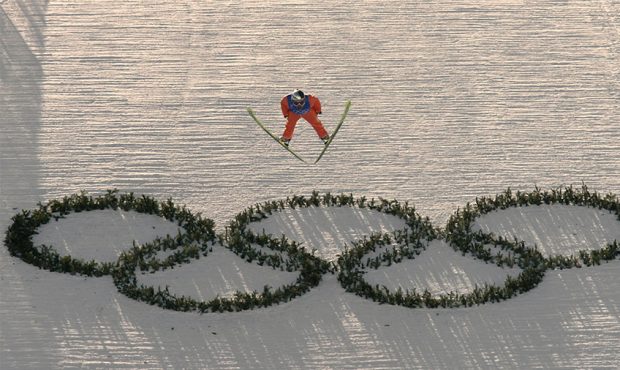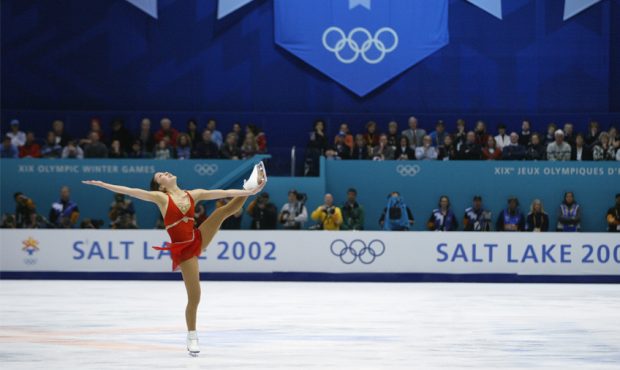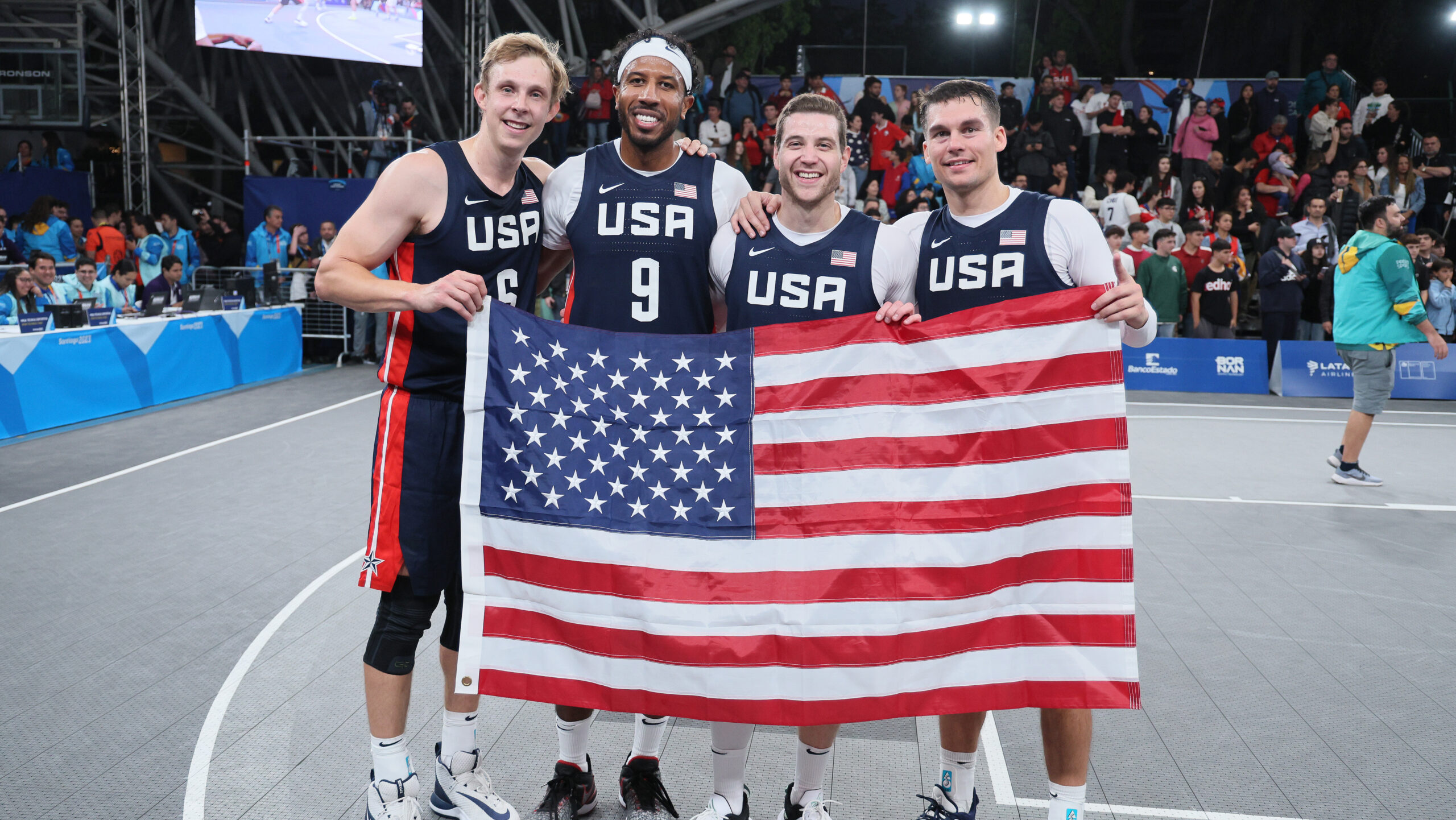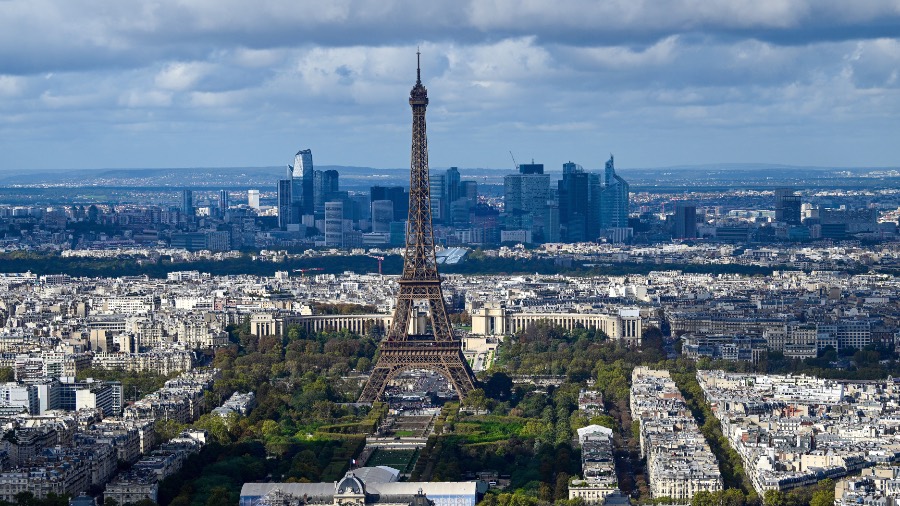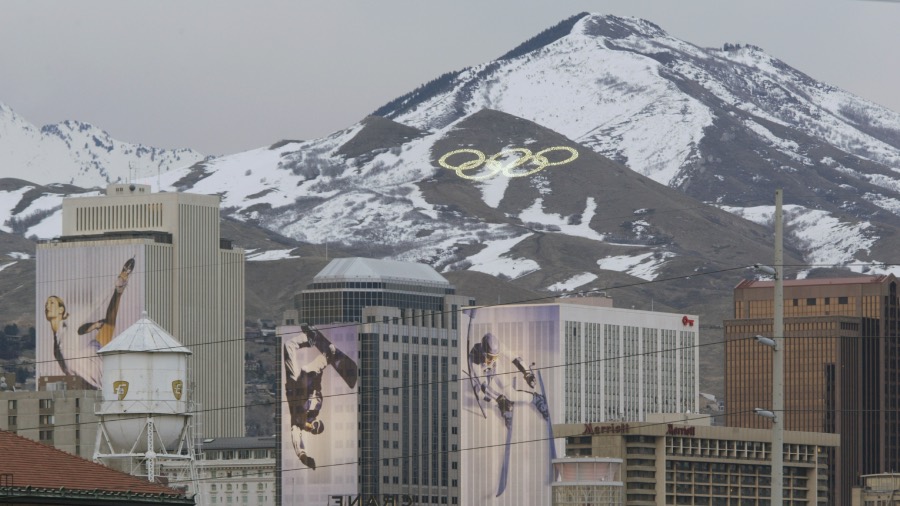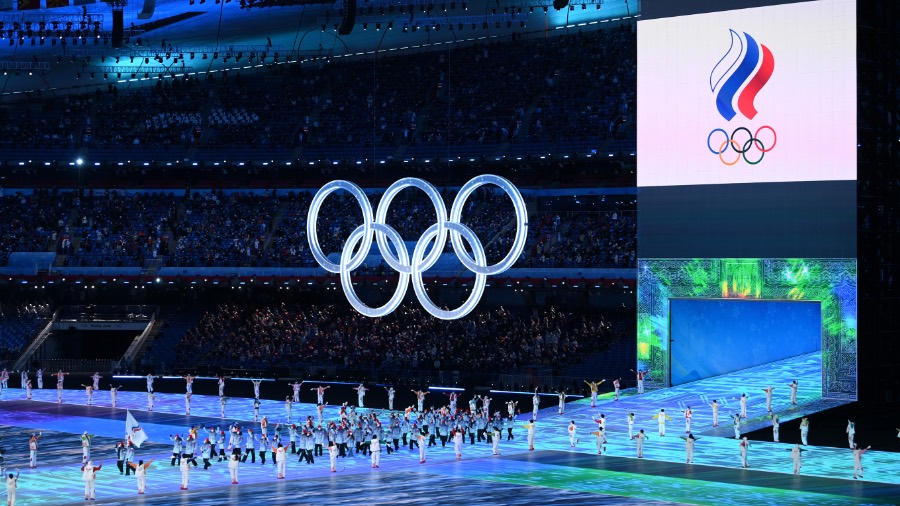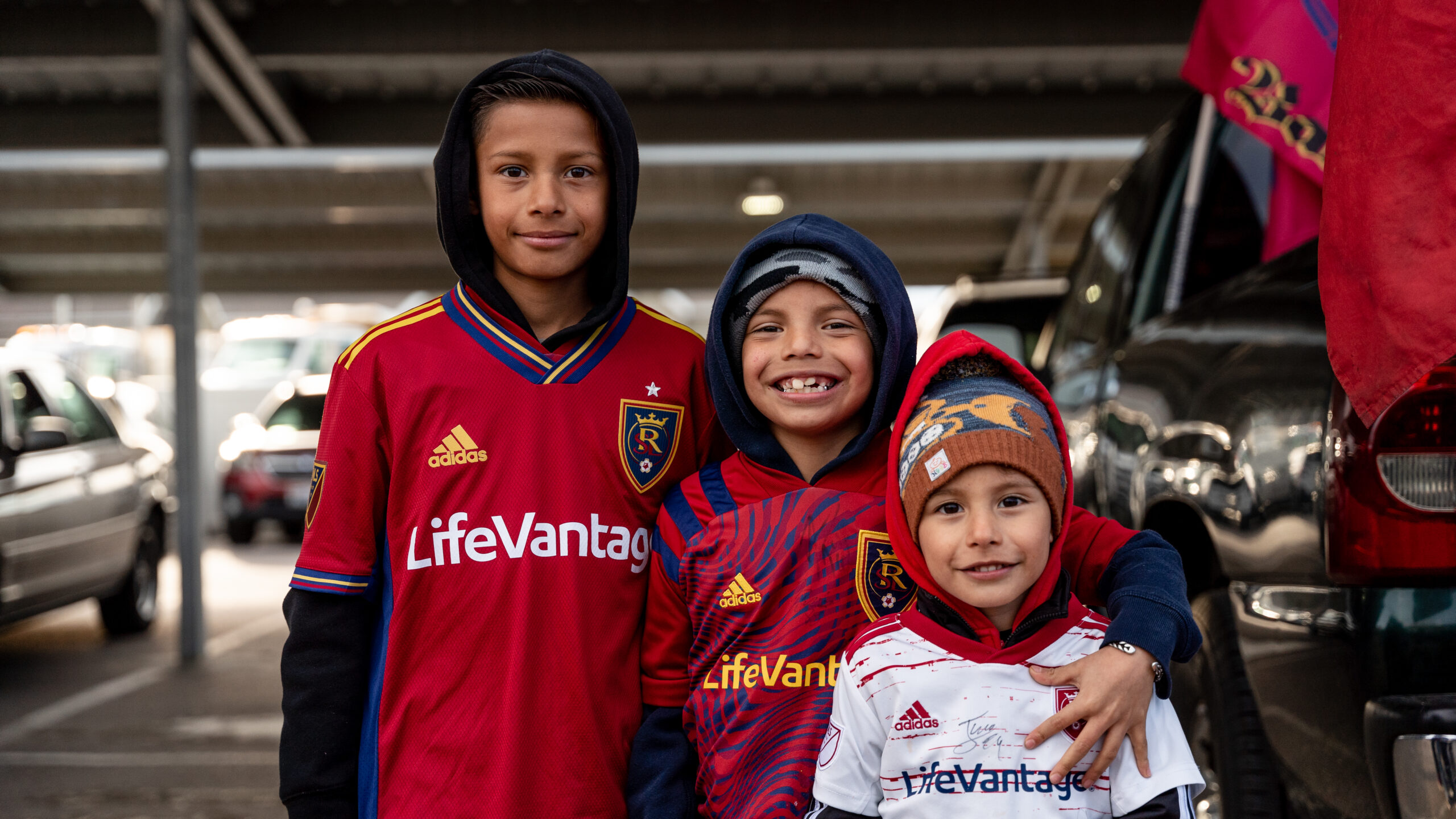On Hold: Tokyo Olympics Postponed To 2021
Mar 24, 2020, 9:15 AM | Updated: 11:13 am
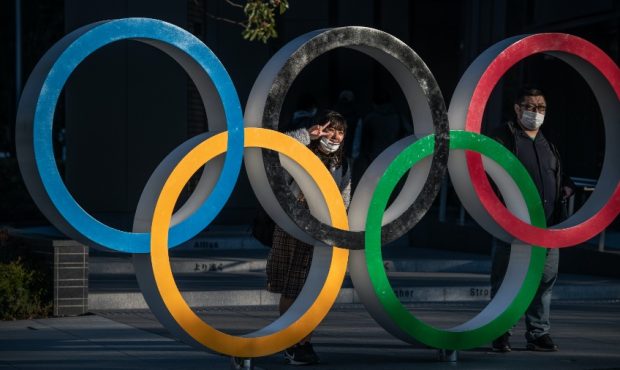
People wearing face masks pose for photographs next to Olympic Rings on March 24, 2020 in Tokyo, Japan. Although an official decision is yet to be announced, International Olympic Committee member Dick Pound has said the Tokyo 2020 Olympic Games will be postponed by one year because of the Covid-19 coronavirus after the chairman of the British Olympic Association said Great Britain would be unlikely to send a team to Tokyo this summer while Australia and Canada also said they will not compete as the global Covid-19 coronavirus pandemic that has so far seen over 380,000 infections around the world forces countries to take drastic measures to protect their populations. (Photo by Carl Court/Getty Images)
(Photo by Carl Court/Getty Images)
TOKYO – The IOC announced a first-of-its-kind postponement of the Summer Olympics on Tuesday, bowing to the realities of a coronavirus pandemic that is shutting down daily life around the globe and making planning for a massive worldwide gathering in July a virtual impossibility.
The International Olympic Committee said the Tokyo Games “must be rescheduled to a date beyond 2020, but not later than summer 2021, to safeguard the health of the athletes, everybody involved in the Olympic Games and the international community.”
It was an announcement seen as all but a certainty as pressure mounted from nervous athletes, sports organizations and national Olympic committees — all confronting the reality that training and qualifying schedules, to say nothing of international anti-doping protocols, had been ruptured beyond repair.
To safeguard the health of the athletes and everyone involved in the Tokyo 2020 Games.
The Tokyo 2020 Olympic and Paralympic Games will now take place no later than summer 2021.
— #Tokyo2020 (@Tokyo2020) March 24, 2020
Four-time Olympic hockey champion Hayley Wickenheiser, the first IOC member to criticize the body’s reluctance to postpone, called it the “message athletes deserved to hear.”
“To all the athletes: take a breath, regroup, take care of yourself and your families. Your time will come,” she wrote on Twitter.
IOC President Thomas Bach and Japanese prime minister Abe Shinzo met via phone Tuesday morning, and they, along with a handful of executives from the IOC and Japan’s organizing committee, agreed to make the call.
Other Olympics — 1916, 1940 and 1944 — have been canceled because of war, but none have ever been postponed for any reason, let alone a renegade virus that has accounted for more than 375,000 cases worldwide, with numbers growing exponentially. The Tokyo Games would still be called the 2020 Olympics, even though they will be held in 2021.
“The leaders agreed that the Olympic Games in Tokyo could stand as a beacon of hope,” the IOC said in a statement.
The International Olympic Committee and the Tokyo 2020 Organizing Committee have agreed to reschedule the Olympic Games.https://t.co/q1V1oCGQHE
— #TokyoOlympics (@NBCOlympics) March 24, 2020
The decision offers a sense of relief for athletes, who no longer have to press forward with training under near-impossible conditions, unsure of when, exactly, they need to be ready — and for what.
“Thankful to finally have some clarity regarding The Olympic Games. A huge decision but I think the right one for sure,” British sprinter Adam Gemili said on Twitter. “Time to regain, look after each other during this difficult period and go again when the time is right!”
One reason the IOC took longer to make the decision was because it wanted to figure out logistics. It will be a daunting challenge. Many of the arenas, stadiums and hotels are under contract for a games held from July 24-August 7. Remaking those arrangements is doable, but will come at a cost. Tokyo has already spent a reported $28 billion to stage the games.
There’s also the matter of the international sports schedule. Virtually all 33 sports on the Olympic program have key events, including world championships, on the docket for 2021. Perhaps the best example of what a disruption this can cause would come from track. Famous Hayward Field at University of Oregon was rebuild and expanded at the cost of $200 million to hold next year’s world championships. Now that event could be postponed, canceled or see its stature greatly diminished if its run within months of a rescheduled Olympics.
“A lot can happen in one year, so we have to think about what we have to do,” said Toshiro Muto, the CEO of the organizing committee. “The decision came upon us all of a sudden.”
But for weeks, it was becoming increasingly clear that pressing on with a July 24 starting date was no longer a choice.
Virtually every sport across the globe has suspended play in the wake of the pandemic. The worldwide economy is faltering and people are increasingly being told it’s not safe to congregate in large groups or, in some cases, even to leave their houses. Gyms are closed across America. Holding Olympic trials in a matter of months was becoming a virtual impossibility.
Olympic committees in Canada and Australia were saying they either would not, or could not, send a team to Tokyo in July. World Athletics and the three biggest sports in the United States — swimming, track and gymnastics — were calling for a postponement.
As recently as Sunday, the IOC was saying it would take up to four weeks to reach a decision. Four weeks ended up being two days.
The decision came only a few hours after local organizers said the torch relay would start as planned on Thursday. It was expected to start in northeastern Fukushima prefecture, but with no torch, no torchbearers and no public.
Those plans also changed.
The flame will be stored and displayed in Fukushima. Like everything else in the Olympic world, it’s next move will be determined at a later date.
Coronavirus Resources
- Have you or a family member been affected by coronavirus issues in Utah? KSL TV wants to hear from you. Contact KSL by emailing [email protected].
- What is COVID-19? Here’s What You Need To Know To Stay Healthy
- What We Know And Don’t Know About The Coronavirus
- Four Common Coronavirus Questions Answered
- The latest coronavirus stories from KSL TV can be found at our Staying Safe: Coronavirus section.
- Your Life Your Health: How can parents prepare their home, children against coronavirus?
How Do I Prevent It?
The CDC has some simple recommendations, most of which are the same for preventing other respiratory illnesses or the flu:
- Avoid close contact with people who may be sick
- Avoid touching your face
- Stay home when you are sick
- Cover your cough or sneeze with a tissue and then throw the tissue in the trash
- Wash your hands often with soap and water for at least 20 seconds, especially after going to the bathroom, before eating, and after blowing your nose, coughing or sneezing. Always wash your hands with soap and water if your hands are visibly dirty.
- If soap and water are not readily available, use an alcohol-based hand sanitizer with at least 60% alcohol.
The CDC does not recommend wearing a face mask respirator to protect yourself from coronavirus unless a healthcare professional recommends it.
How To Get Help
If you’re worried you may have COVID-19, you can contact the Utah Coronavirus Information Line at 1-800-456-7707 to speak to trained healthcare professionals. You can also use telehealth services through your healthcare providers.
Additional Resources
If you see evidence of PRICE GOUGING, the Utah Attorney General’s Office wants you to report it. Common items in question include toilet paper, water, hand sanitizer, certain household cleaners, and even cold medicine and baby formula. Authorities are asking anyone who sees price gouging to report it to the Utah Division of Consumer Protection at 801-530-6601 or 800-721-7233. The division can also be reached by email at [email protected].


